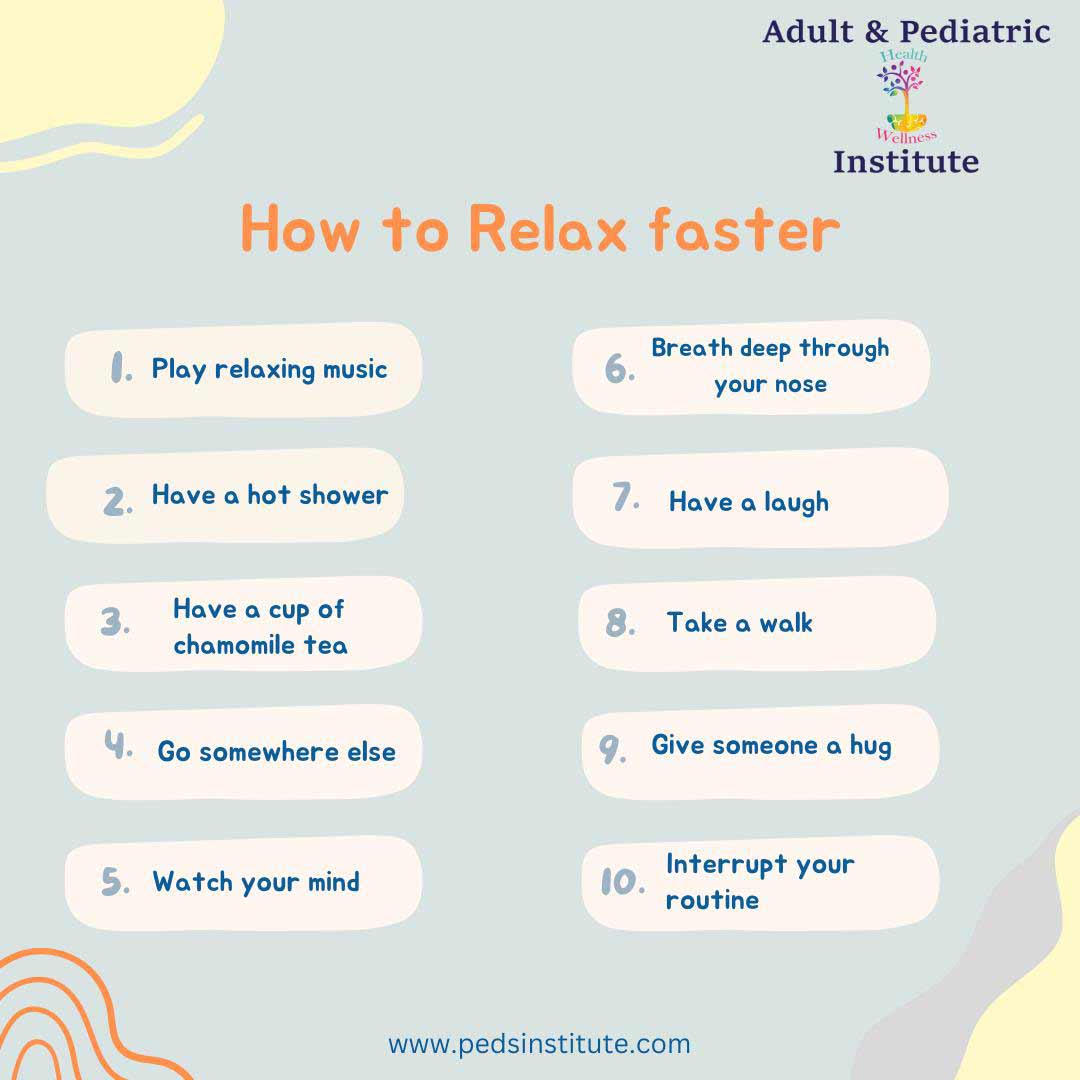
Make Relaxation a Daily Habit
Introduction 10 Effective Ways to Relax:
Particularly during this time of the year is when we found ourselves with more stress and feeling overwhelmed. Stress is an unpleasant feeling that we should learn how to fight because it can also be dangerous. There are many diseases that are known to be caused by stress or made worse by stress. For these reasons and many others we should learn how to relax. You can try these relaxation techniques and use them whenever you feel tense, anxious or overwhelmed:
1. Play Relaxing Music
One of the simplest ways to relax is by playing soothing music. Experiment with different genres—classical, ambient, or nature sounds—to discover which type calms you the most. Once you find your favorite, keep a relaxation playlist or CD at your office, home, or car for easy access during stressful moments. A 2022 study in Frontiers in Psychology found that calming music can lower cortisol levels and reduce heart rate, helping you relax within minutes. Create a playlist with tracks like ocean waves or soft piano melodies to instantly shift your mood.
2. Have a Hot Shower
A hot shower is an easy and effective way to relieve stress. The warm water relaxes your muscles, improves blood circulation, and helps release physical tension. For an added calming effect, consider using a few drops of lavender essential oil—lavender is known for its anxiety-reducing properties,
3. Sip a Cup of Chamomile Tea
Chamomile tea has long been a go-to remedy for relaxation, thanks to its calming effect on the nerves. The herb contains apigenin, a compound that promotes relaxation by binding to GABA receptors in the brain. Hot drinks in general can also create a comforting ritual, helping you slow down and unwind. Brew a cup of chamomile tea, find a quiet spot, and let the warmth soothe your stress.
4. Go Somewhere Else
Sometimes, the best way to relax is to step away from your stressors. Go somewhere else for a little while—whether it’s a nearby park, a quiet café, or even just your backyard. A change of scenery can break the cycle of stress and give your mind a fresh perspective. Research from the Journal of Environmental Psychology (2020) shows that exposure to natural environments can significantly reduce stress and improve mood. Even a short 10-minute escape can make a big difference in how you feel.
5. Watch Your Mind
Mindfulness can be a powerful tool for stress relief. Take a moment to identify the stressors of the moment—whether it’s a work deadline, a personal worry, or a cluttered schedule. Instead of letting these thoughts overwhelm you, try to resolve them one at a time. Write down your concerns, prioritize them, and create a plan to address them.
6. Breathe Deep Through Your Nose
Deep breathing is a quick and effective relaxation technique you can use anywhere. Close your eyes, inhale deeply through your nose for a count of five, hold for a moment, and exhale slowly through your mouth. Repeat this for five slow, deep breaths, focusing only on your breathing. This mini-meditation activates the parasympathetic nervous system, reducing stress hormones.
7. Have a Laugh
Laughter is a natural stress reliever that can instantly lift your mood. Find a friend who always knows the best jokes, watch a funny video, or look for humor in your surroundings. Laughter releases endorphins, the body’s natural feel-good chemicals, and reduces cortisol levels.
8. Take a Walk
Walking is one of the best relaxation techniques, especially if you have at least ten minutes to spare. Find a pretty place to walk—a park, a quiet street, or a nature trail—and take a leisurely stroll. The rhythmic motion of walking, combined with fresh air and natural surroundings, can lower stress levels and improve mental clarity.
9. Give Someone a Hug
A warm hug from someone you trust can be incredibly relaxing. Hugging releases oxytocin, often called the “love hormone,” which reduces stress and promotes feelings of connection and calm.
10. Interrupt Your Routine
Breaking out of your daily routine can be a surprisingly effective way to relieve stress. Stop what you’re doing and try something different—whether it’s stepping outside for a quick stretch, doodling for a few minutes, or listening to a new podcast. Disrupting habitual patterns can shift your mindset and reduce anxiety,
